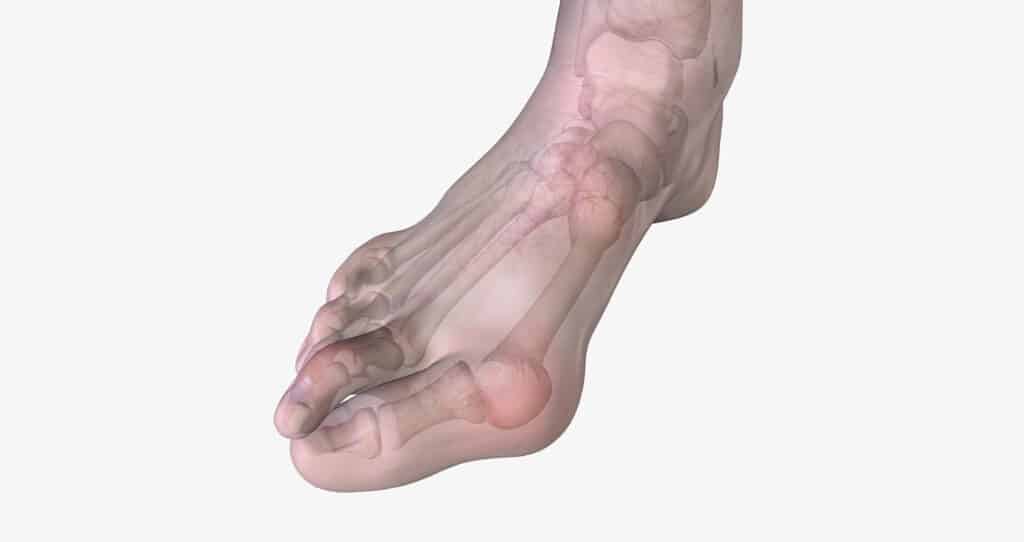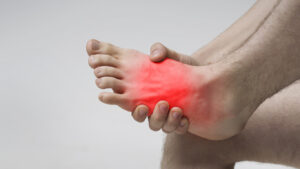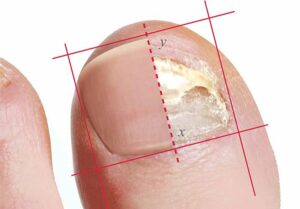Bunions and Genetics: Exploring the Hereditary Aspect of Foot Conditions
Bunions are a prevalent foot condition that can cause discomfort and affect the quality of life. Many people wonder if bunions are hereditary. In this blog, we will delve into the genetic component of bunions, helping you understand whether they can be passed down through generations. Let’s explore the science behind bunions and discover if you might be genetically predisposed to them.
What Are Bunions?
Before we discuss the hereditary aspect of bunions, let’s first understand what bunions are. A bunion is a bony bump that forms at the base of the big toe. It occurs when the big toe pushes against the adjacent toe, causing the joint to protrude. This can result in pain, inflammation, and difficulty in finding comfortable footwear. LEARN MORE

The Genetic Connection
To determine if bunions are hereditary, we need to consider the genetic factors at play. Research suggests that genetics can contribute to the development of bunions. If your parents or grandparents have had bunions, you might be at a higher risk of developing them as well. However, heredity is just one piece of the puzzle.
Other Contributing Factors
While genetics play a role, bunions are often the result of a combination of factors. These include:
- Foot Structure: The shape of your feet, such as having flat feet or a low arch, can increase your susceptibility to bunions.
- Footwear: Wearing tight, narrow, or high-heeled shoes can force the toes into an unnatural position, potentially leading to bunions.
- Injury: Trauma or injury to the foot can also trigger bunion formation.
- Medical Conditions: Certain medical conditions, such as arthritis, can make you more prone to developing bunions.
Prevention and bunions treatment
While you may have a genetic predisposition to bunions, there are steps you can take to reduce your risk or alleviate their progression:
- Choose Proper Footwear: Opt for shoes that provide adequate support, have a wide toe box, and allow your toes to move naturally.
- Orthotics: Consider using orthotic insoles to help correct your foot alignment and reduce the risk of bunions.
- Regular Check-ups: If bunions run in your family, it’s essential to have regular foot check-ups with a podiatrist to catch any issues early.
- Conservative Treatment: In the early stages, conservative measures like padding, splinting, and physical therapy can help manage bunion symptoms.
- Surgery: In severe cases, surgical intervention may be necessary to correct the bunion and alleviate pain.

In Conclusion
So, are bunions hereditary? While genetics can be a contributing factor, they are not the sole cause of bunions. The interplay of genetic predisposition, foot structure, footwear choices, and other factors all play a role in the development of bunions. By being aware of your family history and taking preventive measures, you can reduce your risk and maintain healthy, pain-free feet. If you suspect you have bunions or need guidance on managing them, consult a podiatrist for expert advice. BOOK AN APPOINTMENT

Frequently Asked Questions about Bunions:
1. Are bunions hereditary?
- Yes, bunions can be hereditary. If one or both of your parents or grandparents have had bunions, you may be at a higher risk of developing them as well. However, heredity is just one of the contributing factors, and not everyone with a family history of bunions will necessarily develop them.
2. What are bunions?
- Bunions are bony protrusions that typically form at the base of the big toe. They result from the misalignment of the metatarsophalangeal (MTP) joint, causing the big toe to angle towards the other toes.
3. What causes bunions other than heredity?
- While genetics play a role, other factors can contribute to the development of bunions, including wearing tight-fitting shoes, high heels, or shoes that don’t fit properly. Foot injuries, structural deformities, and certain medical conditions can also increase the risk of bunions.
4. Can you prevent bunions if they run in the family?
- While you can’t change your genetic predisposition to bunions, you can take preventive measures. Choose well-fitted, comfortable shoes with adequate toe space, avoid high heels, and consider orthotic inserts for additional support. Regularly stretching and strengthening the muscles around your toes and feet may also help.
5. Are bunions painful?
- Bunions can be painful, especially when they become inflamed or irritated. The pain is often caused by pressure on the bunion when wearing shoes, and it may affect your ability to walk comfortably.
6. How are bunions treated?
- Treatment options for bunions range from conservative measures like changing footwear, using orthotics, and taking pain relievers, to surgical interventions in severe cases. A podiatrist or orthopedic specialist can provide guidance on the best treatment approach based on the severity of your condition.
7. Can bunions be corrected with surgery?
- Yes, in some cases, bunions can be corrected through surgery, typically when conservative treatments do not provide relief or the bunion is causing significant discomfort. The type of surgical procedure will depend on the specific condition and the patient’s needs.
8. What should I do if I suspect I have a bunion?
- If you suspect you have a bunion or are experiencing foot pain, it’s advisable to consult a healthcare professional, such as a podiatrist. They can assess your condition, provide a diagnosis, and recommend appropriate treatment options. Early intervention can help manage the condition and prevent it from worsening.
Remember that heredity is just one factor in the development of bunions. While you can’t change your genetics, you can take steps to minimize your risk and seek treatment if necessary to maintain foot health.
















